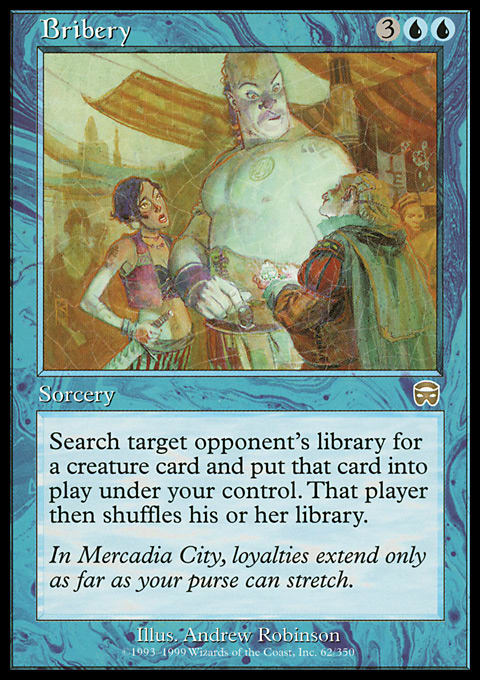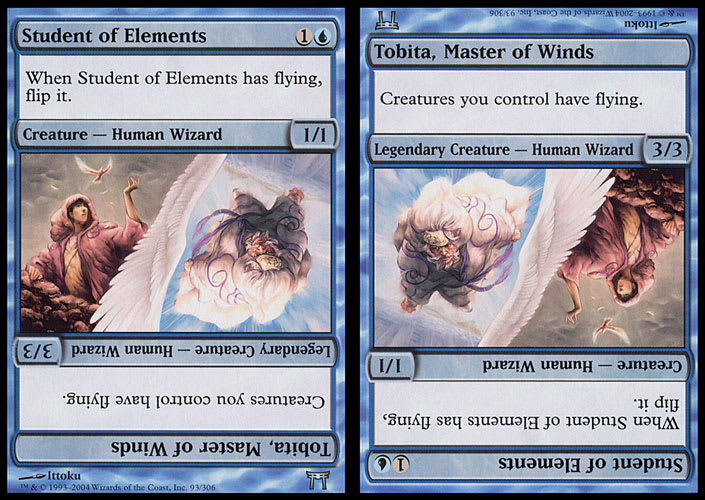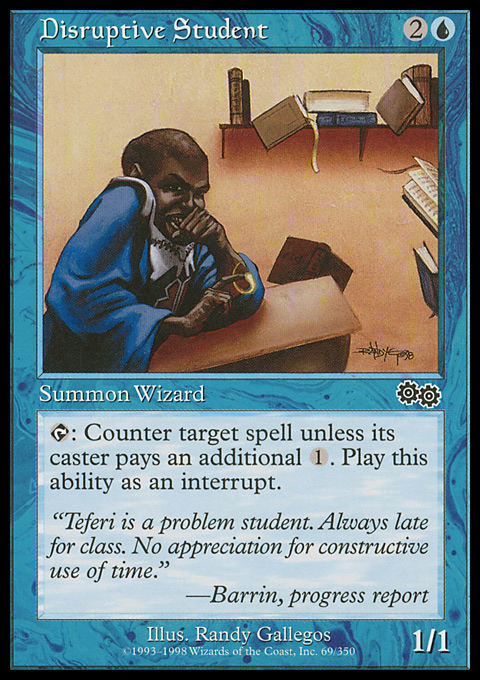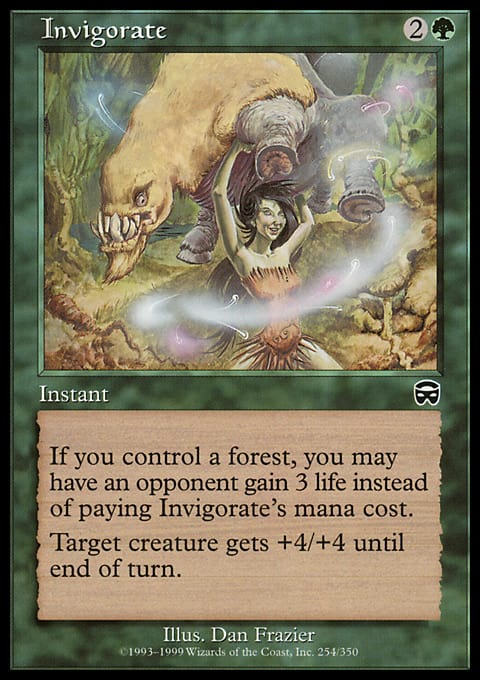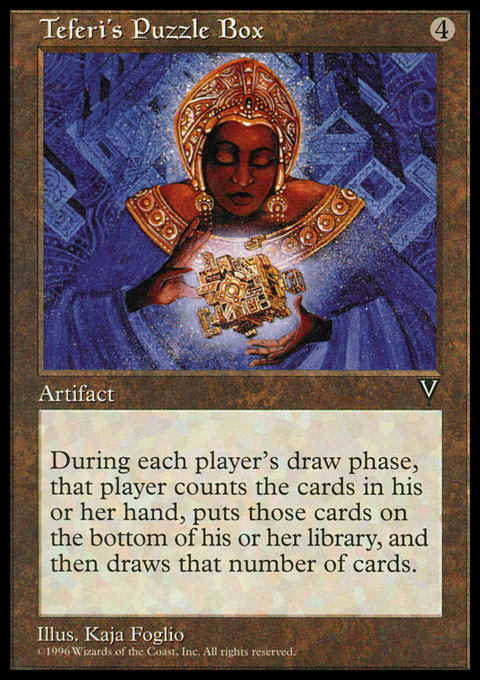I think it is time to declare it: I am officially studying play. I've been writing this column for over a year now, I based last year's group therapy project around Magic, and I am doing my doctoral dissertation on MMORPGs. Yes, I do believe it is time to go ahead and make it my thing.
This was a joyous realization. Despite the success I've achieved bringing aspects of play into my work, I've always had a lingering assumption that eventually, it would be time to put away my toys and choose a real focus. Looking at the pattern I'd set up—and where it was bound to take me—I thought, “You mean I might get to do this for the rest of my life?”
Not two days later, I read Zac Hill’s powerful article on why he chose to leave his dream job at Wizards of the Coast. Unfortunately, it is behind a pay wall, but the gist I got was this: He had lost sight of anything outside of gaming, and he hated that. He now works for an organization that connects kids with resources, and he seems content.
Of course, I immediately began to worry. Would that happen to me? Was a call to quit messing around still going to come one day—not by necessity, but from within?
I reflected on this for a while. I thought about the purpose of my dissertation—to help us understand the friendships formed through MMORPGs. I thought about the way some people glow when they talk about Magic, the stories they tell about how it changed their lives. I thought about how it's changed my life.
When I was researching for this article, I read a passage to my husband about incorporating play concepts into corporate settings. “What,” he said, “like putting slides in the lobby?”
“No.” I didn't know exactly what it meant, but I knew that wasn't right. Understanding play isn't about the surface—it's not just about things that are designed for children or about the stimulus–response behavior that keeps people grinding some games long after they're bored.
Play is among the most powerful developmental tools children have, and that doesn't necessarily change after we grow up. I've always been drawn to the aspects of psychology that tap into the natural urge to grow and heal—positive psychology, self-determination theory, humanism. Given that I basically came of age reading Making Magic, Savor the Flavor, and Latest Developments in between textbook chapters, this should be no surprise.
And so, to genuinely understand play, it is important to understand how the concepts have been repackaged to look “serious” but are still identifiable. Rather than the empty escapism I feared it to be, I realized that play can be expansive and inform our entire lives.
I’ll go through some of the features of play to show how they impact our lives long after we may think we’ve outgrown them. Since there are a lot of them, I’m saving the emotional aspects until next week. For now, let’s take a look at how we think and learn.
Spontaneity and Autonomy
As a general rule, children don’t need to be told to play. You don’t sit a four-year-old down and say, “You know, it’s time for you to begin developing your creative skills and practicing social roles, so I’m going to need you to take this bowl and this dirt and pretend to make a birthday cake.”
Children have a natural drive to engage in activities that will move their development forward (Brown 43). And they certainly don’t need to be incentivized—in fact, offering a reward actually makes children less interested in an activity (Lepper and Greene 479).
As Magic players, we experience this in our play in a variety of ways. When asked on Twitter why they love the game, a number of people listed cognitive benefits they had received from the game.
@maro254 i love #mtg because it has taught me how to correctly think out situations and realize when to attack them.
—Matthew Keene (@CurlyfryUSA34) November 20, 2012
@maro254 I love #mtg because it keeps my brain from atrophying.
— Justin D-Z (@justin_dz) November 20, 2012
@maro254 I love #mtg because I have learned so much about so many seemingly unrelated things through my involvement in it.
— Russell Tassicker (@rtassicker) November 19, 2012
That said, these benefits seem to be incidental. Although they may exist, I have yet to meet someone who picked up Magic because he or she wanted to improve him or herself. The benefits seem to be a byproduct of our natural interest in a compelling game.
Lesson: The most powerful motivation often comes from within.
I talked briefly about this in my piece on motivation. Some activities are intrinsically motivated—as in the case of play, we can be motivated by our own inherent enjoyment of the activity. Others are extrinsically motivated—we're doing them in the pursuit of some end goal (Deci, Vallerand, Pelletier, and Ryan 328).
Unsurprisingly, research has found correlations in children between intrinsic motivation for academics and academic performance (e.g. Academic Intrinsic Motivation in Elementary, qtd. in Deci, Vallerand, Pelletier, and Ryan 332).
A clear example of purely extrinsic motivation came from my high school French class. After I did unexpectedly well on a standardized test, my teacher decided that I needed more challenging work.
I saw this as a sick joke.
You see, when I did my homework for French class, I did it so that it would be done. It was a classic example of extrinsic motivation—I cared about the grade, not the work, so anything that stood between me and the grade was just an annoyance.
In most cases, the opposite is true with Magic. To play the game is an end in itself more than a means to an end. This is nicely reflected in one of my favorite tweets about why someone loves the game:
i love #mtg because when i'm done with a game, i can play another! @maro254
— Ty Thomason (@ceciliajupe) November 19, 2012
Engagement
That said, not everything we enjoy doing is necessarily play. We do plenty of things for their own sake—eating junk food, for example, or sleeping in—which are not particularly playful (Garvey 4).
The distinction between play and nonplay is not entirely clear—one author criticized the extent to which children now spend time watching television instead of actively playing (Schaefer 3), while another suggested that watching television actually is play if the viewer is engaged (Brown 61).
Fortunately for our purposes, Magic is well clear of the grey area—it is definitely engaging. There is no lounging in Magic. Whether you're playing a match or building a deck, you're going to need to pay attention.
Lesson: Enjoyable doesn’t necessarily mean easy.
Researcher Mihaly Csikzentmihalyi originated the idea of “flow experiences”—the feeling you have when you are completely lost in your task. According to him, the feelings that comes with these experiences tend to be fairly consistent across a variety of areas—he mentioned athletes, artists, and even mystics (29).
Jackie Lee wrote more in depth about flow and Magic, but the gist is this: Flow happens when you are engaged in a task that is at just the right level of challenge. You need to be at the top of your game to succeed, and you are receiving immediate feedback on how you're doing (Csikzentmihalyi 30). It contributes to the feeling of an intense, fair game—nobody's mana-flooded, neither person is substantially better than the other, every decision counts. According to Csikzentmihalyi, these are the times when we feel at our best (66).
Csikzentmihalyi distinguishes between active and passive leisure based on how likely they are to induce flow. According to his study of teenagers, out of all the activities he looked at (games/sports, hobbies, socializing, thinking, listening to music, and watching TV), games and sports were the most likely to induce flow—44% of the time. In contrast, watching TV induced flow only 13% of the time. In addition, games and sports created apathy less than half as often as television watching. So why do we spend so much time watching TV? Active leisure takes an investment of energy (67).
Magic provides a number of incentives to put in this “activation energy”—friends who want to play with you, commitments to judging, regularly timed tournaments that become habit. I can't tell you how many times I've been cajoled into drafting or playing Commander when I really just felt like staring at a computer screen . . . and then found myself more refreshed than when I started. The engagement involved in playing makes it a special sort of pastime.
Improvisation
A third feature of play, and one I feel is central to its “playful” quality, is its flexibility. Whether you call it improvisation, imagination, or just silliness, to play is to allow for the unexpected and the unrealistic (Schaefer 1).
In a study of play and creative problem-solving, preschoolers were asked to retrieve a piece of chalk out of a box that was latched shut and out of reach. To solve the problem, the children had to clamp two sticks together and use them to flip the latch and pull out the chalk.
Before they were asked to solve the problem, some of the children were allowed to play freely with the sticks and the clamps. Unexpectedly, those children were better at solving the problem than children who had actually been given training in clamping the sticks together. Notably, the children who had played pretend in some way, such as by making the sticks into a house or a letter, solved the problems the best (Sylva, qtd. in Garvey 50-51).
Magic provides many opportunities for improvisation. Indeed, we seem to hate it when our chances to improvise drop below a particular level. Think about the things that annoy us most—noninteractive gameplay, a stagnant metagame. Both of these take out the element of surprise and freedom that normally go into playing Magic.
When we play, it seems, we want an opportunity to play. This varies from person to person—I suspect that opportunities for improvisation are particularly important to casual players, for whom Magic is a purer form of play rather than a competition. Look at the casual popularity of Commander. Consistency is the enemy of improvisation.
Lesson: We can be creative without even knowing it.
When talking about creativity, there are two main kinds: convergent thinking and divergent thinking. Convergent problem solving focuses on finding the “correct” solution, while divergent problem-solving is about generating a variety of solutions (Pepler and Ross 1203). Research on these topics often focuses on corporate applications like advertising.
In Magic, the need for improvisation gives us opportunities to exercise both our convergent divergent thinking. Building a deck from scratch is a divergent problem, particularly when building around open-ended cards. Johnny is the king of divergent thinking.
Convergent problems, on the other hand, include how to beat the reigning deck in the metagame and how to best deal with an opponent’s bomb. Convergent thinking, in my opinion, is more of a Spike kind of skill.
Essentially, playing Magic is an exercise in both convergent and divergent thinking. Which one you do more of depends on what part of the game you're drawn to, but it is hard to play Magic without a certain level of creativity. We are practicing our divergent and convergent thinking without even realizing it.
I hope you enjoyed reading about the serious science of thought hiding in our humble game. Join me next week, when I talk about what it brings to our emotional life, including how a little light in the dark times turned out to be one of the best investments I ever made. Because gaming is serious business—and at the same time, it's not. And, in my opinion, both of these are what make it so worth learning about.
Works Cited
- Brown, Stuart. Play: How it Shapes the Brain, Opens the Imagination, and Invigorates the Soul. Enlarged Ed. New York: Avery, 2009. Print.
- Csikzentmihalyi, Mihaly. Finding Flow. 1st Ed. New York: BasicBooks, 1997. Print.
- Deci, Edward L., Robert J. Vallerand, Luc G. Pelletier, and Richard M. Ryan. "Motivation and Education: The Self-Determination Perspective." Educational Psychologist. 26.3-4 (1991): 325-346. Web. 24 Feb. 2013.
- Garvey, Catherine. Play. Enlarged Ed. Cambridge, MA: Harvard University Press, 1990. Print.
- Lepper, Mark R., and David Greene. "Turning Play into Work: Effects of Adult Surveillance and Extrinsic Rewards on Children's Intrinsic Motivation."Journal ol Personality and Social Psychology. 31.3 (1975): 479-486. Web. 24 Feb. 2013.
- Schaefer, Charles. "What Is Play and Why Is It Therapeutic?"The Therapeutic Powers of Play. Charles Schaefer. Northvale, NJ: Jason Arnson Inc., 1993. 1-15. Print.



















